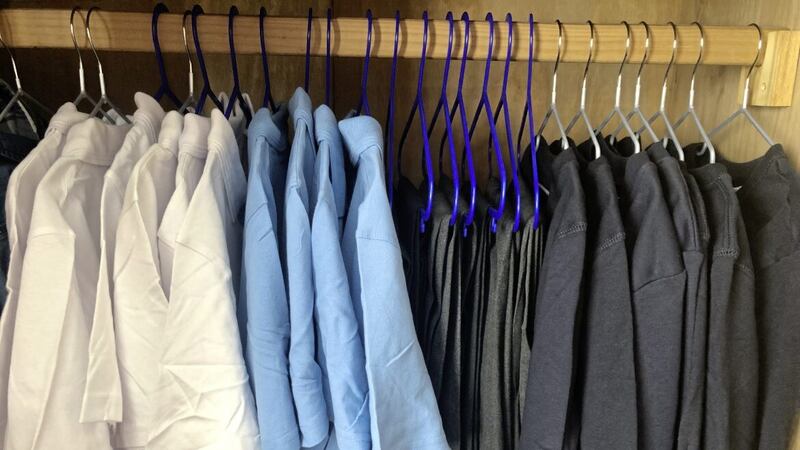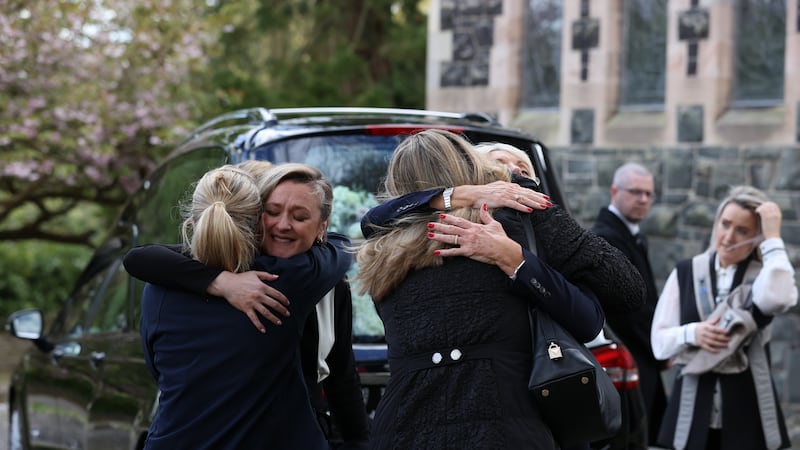“Assembly needed to tackle huge school uniform costs”, declared the headline on a Sinn Féin press release last week.
Ideally, yes, but Stormont has not tackled this perennial problem throughout a quarter of a century of on-off operation.
It also has a flawed idea of what action involves. Rather than passing a law requiring uniforms to be affordable and available from multiple suppliers, the Department of Education issues non-binding guidance that schools ignore, then hands out grants to help families cope with its failure.
Grants paper over and sustain the problem without fixing it. The £60 maximum for a secondary pupil is less than the price of a branded blazer. The typical £5 million total budget is both inadequate to the task and an obscene waste of public money. Why should a penny be spent on a frivolous subsidy to clothes shops?
The motivations of politicians must be understood. Legislation is a one-off, obscure event, while grants are a recurring demonstration of largesse. Power-sharing makes it difficult for any one party to claim credit for a law, adding to the temptation to just hand out money for applause.
Read more:
Newton Emerson: Schools need dressing down on uniform costs
Six in ten parents struggling with cost of school uniforms according to poll
Council and charities partner in school uniform re-use scheme
Expensive uniform requirements are more popular than often admitted. Many parents like them and do not struggle to afford them. Policies are set by school governors, who by definition are active members of society, better able than most to bend political ears.
The issue came to something of a head in the summer of last year, with Stormont in caretaker mode and a cost of living crisis looming.
DUP education minister Michelle McIlveen, an ambitious cultivator of her image, raised the grant budget by 20 per cent and asked her officials to prepare legislation, while admitting it would only apply “in future years”, as the DUP’s boycott meant there was no assembly to pass it. As a stopgap, she also asked her officials to find creative ways to control costs under existing laws.
The Welsh government managed this in 2019, digging up a little-known clause in a 2006 law that requires school boards to consult ministers on discipline policy. This was used to issue statutory uniform rules, which have since been progressively tightened.
The 2006 law applies only to England and Wales. However, a similar law was passed in Northern Ireland the same year under direct rule, allowing ministers to set a standardised suspension and expulsion policy. At the moment, each school sets it own policy subject to guidelines and a few legal limits.
If schools were prohibited from sending pupils home for breaching certain uniform rules, those rules would become effectively unenforcible.
Bizarrely, the relevant sections of the expulsions law have never been activated. This requires a commencement order, normally delivered with the stroke of a ministerial pen. It would have to be done at Westminster in devolution’s absence, as happened earlier this year with Dáithí’s Law on organ donation, which Stormont rushed through then forgot to switch on.
The Northern Ireland Office is not about to intervene on school uniforms but there is nothing to stop an education minister exploring the suspensions option if and when devolution returns. They should be asked why they have not done so every time they wring their hands about uniform costs.
Perhaps it is just as well there is another legal avenue that does not depend on Stormont in any way. A uniform policy involving an exclusive or restricted number of suppliers almost certainly breaches competition law. This law is not devolved and is enforced across the UK by the Competition and Markets Authority (CMA), which has an office in Belfast.
The CMA and its predecessor, the Office of Fair Trading, have been cracking down on school uniform deals for two decades. In 2015, the CMA wrote to head teachers and school boards across the UK warning them such deals can be investigated and lead to suppliers being fined 10 per cent of turnover.
The problem in England has since been solved, with a direct law on school uniforms coming into effect last September.
That leaves Northern Ireland as an outlier and the CMA with plenty of expertise to focus in our direction. It accepts complaints from the public about specific and general abuse of competition.
Schools that think they are Eton and governors who think of themselves as pillars of the community really do not like being in trouble with the authorities.
It might only take a few investigations, or threats of investigations, to educate them all.









